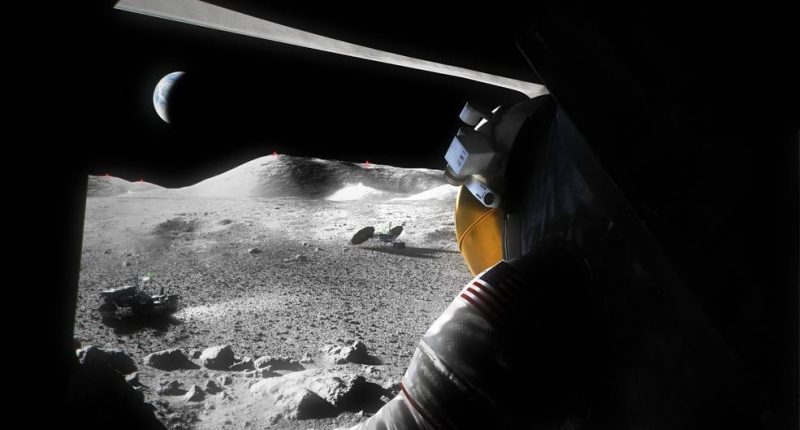Nearly a year after NASA awarded SpaceX with the $2.9Bn Moon lander contract (which others did not take well), the agency has announced that other space companies such as Blue Origin and Boeing will get another shot to sending a lander to the moon.
It has been nearly 50 years since man last set foot on the moon. NASA had been planning to change that when it awarded the moon lander contract to SpaceX, and now, Elon Musk’s space company will not be the sole one to get such a contract.
Companies other than SpaceX will have to propose lander concepts that are capable of ferrying astronauts between lunar orbit and the lunar surface for missions beyond Artemis III, which is scheduled to launch by 2025.
For the uninitiated, Artemis III is set to be the first crewed Moon landing mission of the Artemis program and the first planned flight of SpaceX’s Starship HLS variant.
The company that wins the new Sustaining Lunar Development contract will “pave the way to future recurring lunar transportation services for astronauts at the Moon,” NASA said. The second lander will be developed to take people to and from the orbit and surface of the moon by 2026-27.
It is good to see NASA expanding beyond SpaceX, something that Blue Origin will undoubtedly like. Jeff Bezos’ space company had taken NASA to court over awarding the contract to SpaceX, claiming that it was an unfair advantage to SpaceX. They did lose the lawsuit, however, as one of the prime reasons behind NASA choosing only one company (and not two, as it had hinted) was due to lack of funds. Now, NASA is looking to expand the contract with SpaceX for another lander.
The new landers, according to NASA, will be built and operated according to the agency’s long-term requirements at the moon. They should also have the capability to dock to a lunar orbiting space station known as Gateway, increase crew capacity, and transport more science and technology to the surface.
Later, NASA will release a draft request for proposals. After the new draft solicitation is published, NASA will host a virtual industry day, following which there will be a final request for proposals for all American companies (apart from SpaceX, of course).
